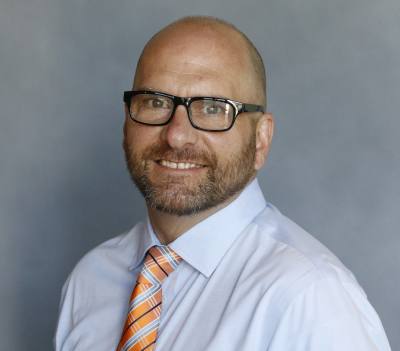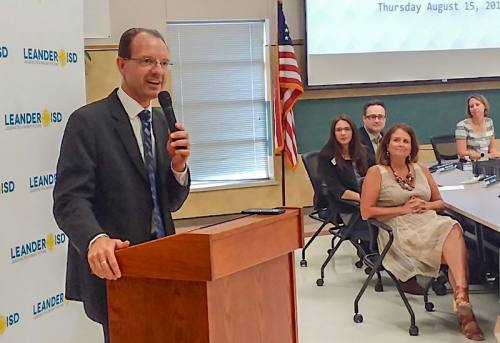
A native of South Africa who became a U.S. citizen in 2010, Bruce Gearing has education experience spanning three continents, from teaching in South Africa and England to serving as superintendent of the burgeoning Dripping Springs ISD, his last job. Gearing started Sept. 3 as Leander ISD’s superintendent.
You moved from a district with about 7,000 students to one with more than 40,000. How will that change how you do your job? In a sense, it’s almost like having six Dripping Springs in one. Right now that’s how my mind is breaking it down, saying “I’ve got six feeder patterns, and I know and understand how one of those feeder patterns works, so each one is going to have its own culture, its own way of doing business, its own strengths and its own weaknesses.”
What do you see as LISD’s biggest strength? This is a high-performing district. … Their strength comes from this performance base that you then can launch from and say, “So, we don’t have to worry that these kids are going to perform, so what do we do next? How do we take them to the next level?”
What challenges are facing LISD? The most important thing for me is to prepare and help prepare the students for their future. We know the world around us is changing extremely rapidly, and we’ve got to make sure what we’re doing for kids prepares them for that future.
In the accountability ratings, one LISD school received a D and seven schools got a C. How do you intend to improve those ratings? That’s just one measure of student achievement. It’s one test on one day, and for me it doesn’t measure learning. … We’ll take care of the hoops we have to jump through in the state accountability system and make sure we perform adequately in that system, but that is not going to be our focus by any means. We’re going to focus on real learning.
Who was your favorite teacher? In middle school I had a math teacher named Kevin Doyle. He was an extremely strict teacher and had extremely high expectations. … The way he cared and then coupled with the high expectations really shaped who I’ve become as an educator.
What is your vision for LISD? This district is about the community and the education that they want for their children. So we have to build this collective culture and this collective vision, for what do we want learning to look like in LISD? When we understand what that is, then we can start to make goals and put processes in place.
What is something you would like community members to know about you? I really, truly care about every kid. I treat every kid in the system as if they were my own. So whenever I’m making a decision I’m asking myself, “If this were my kid in this situation, what would I do?” And that’s what I’m going to do.





